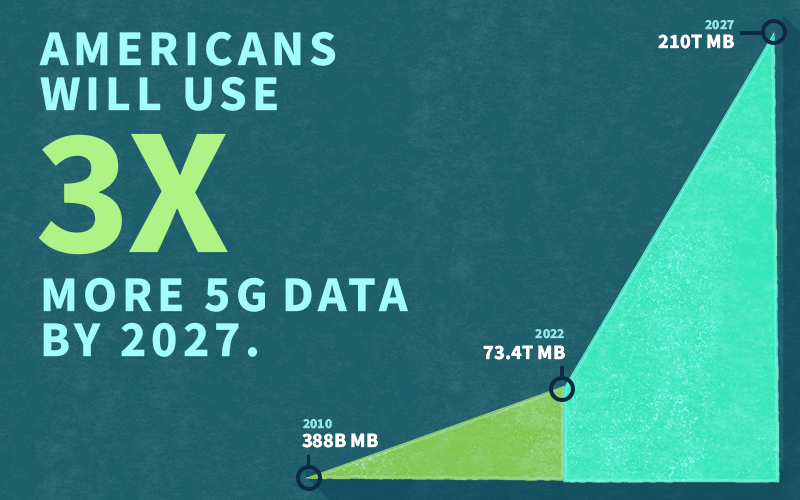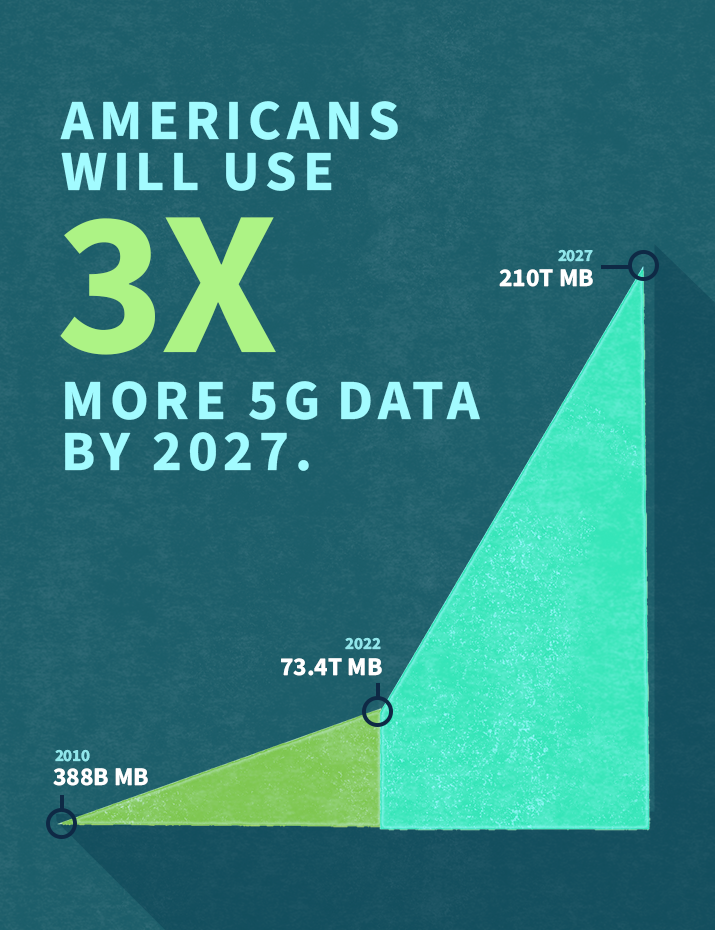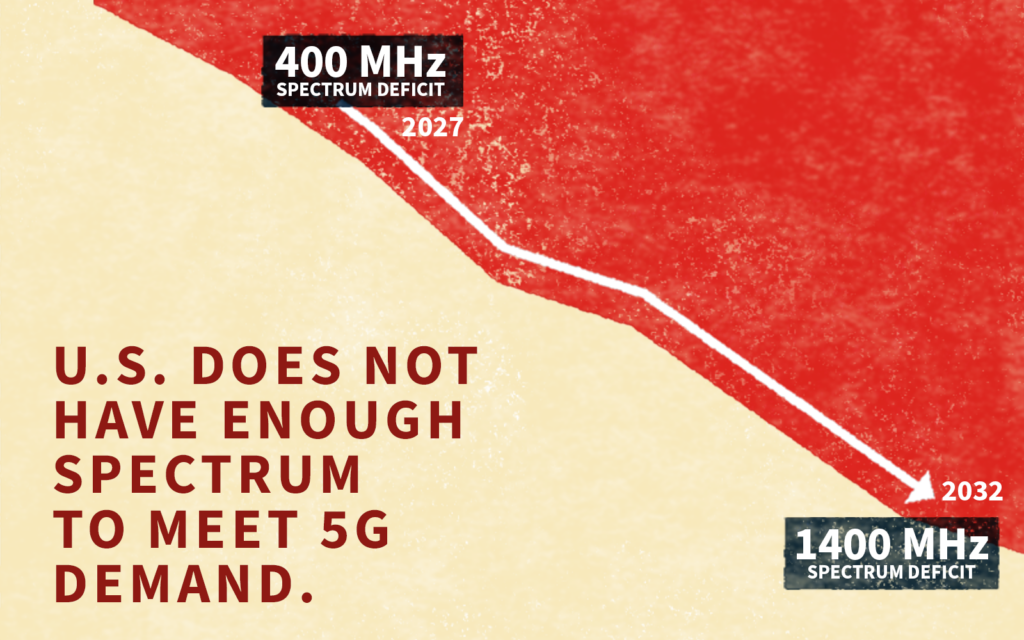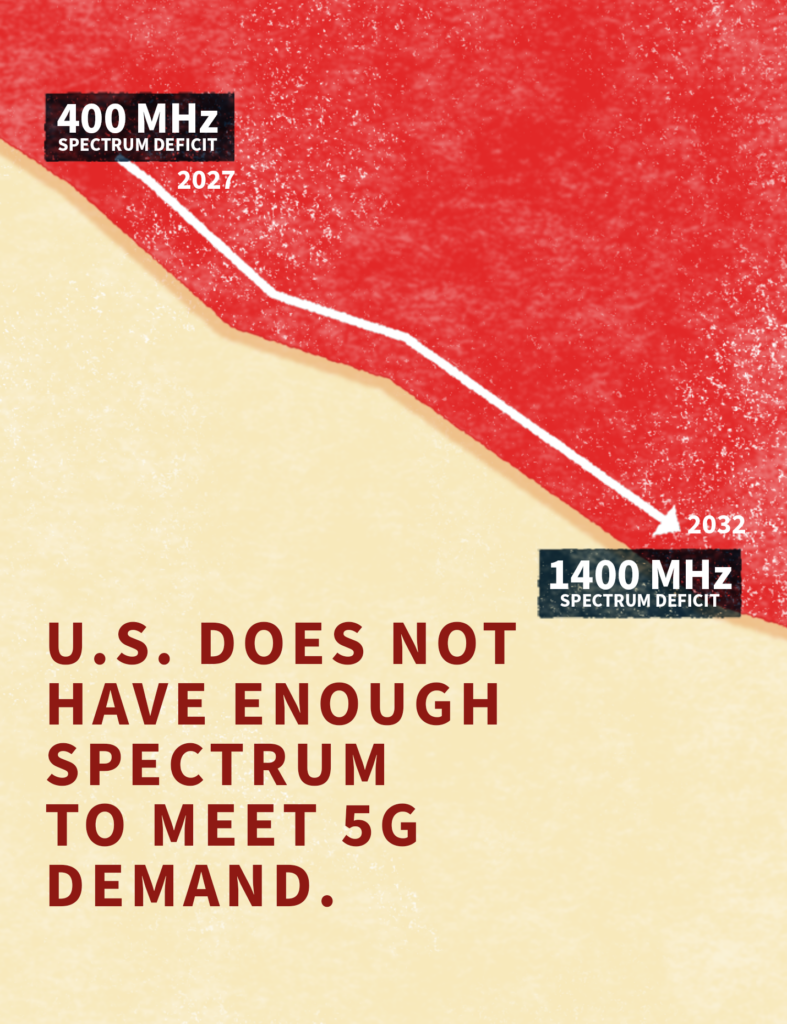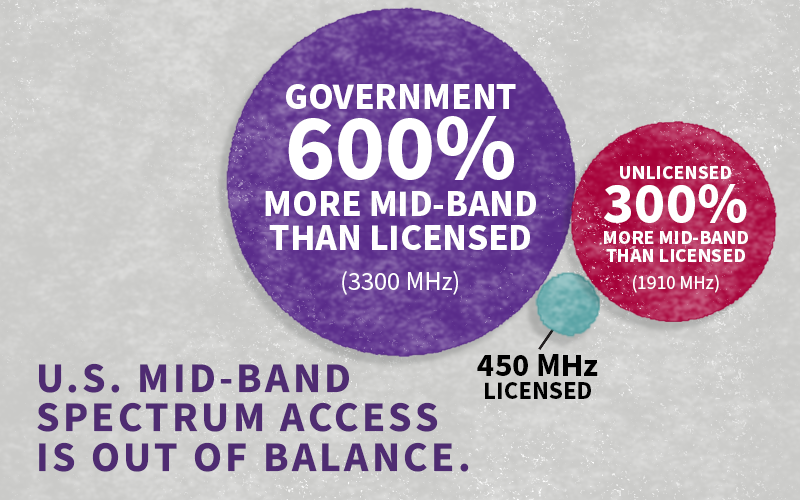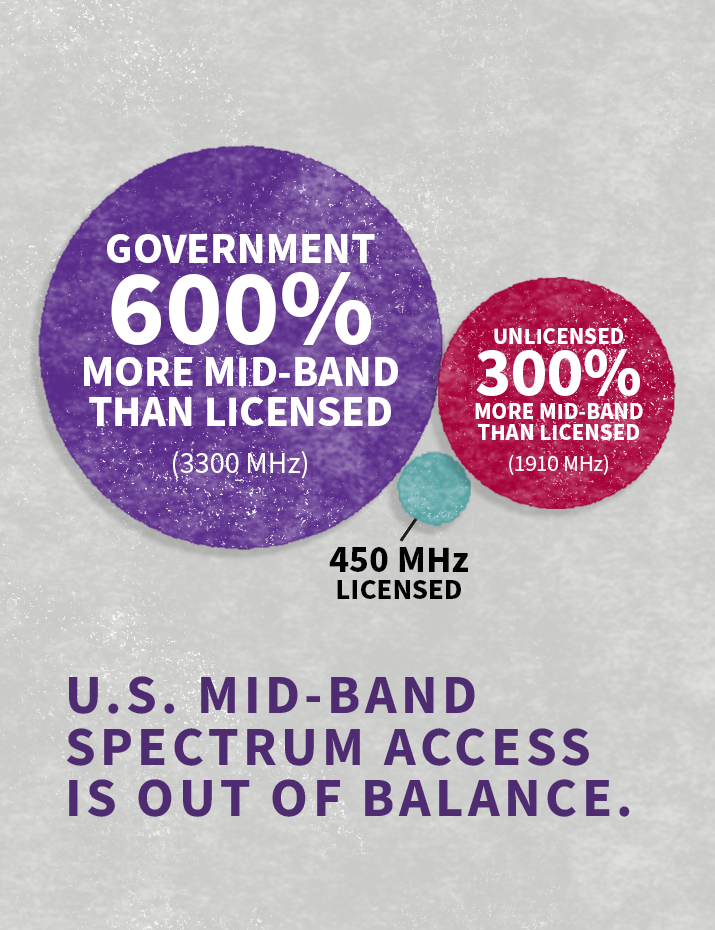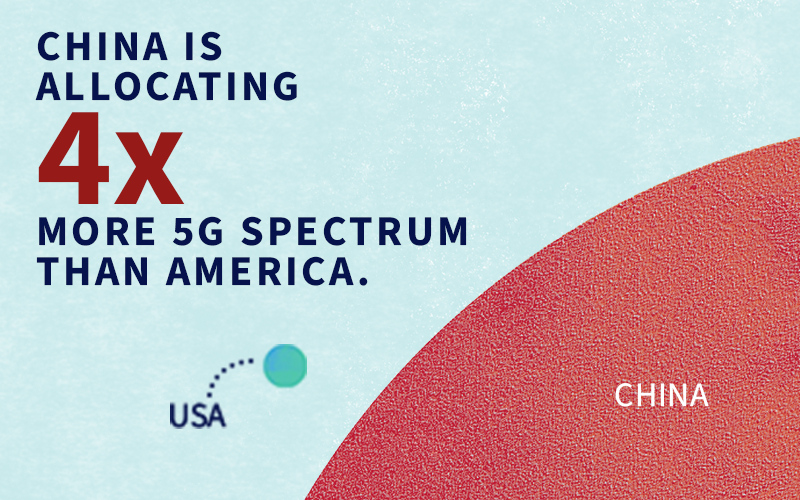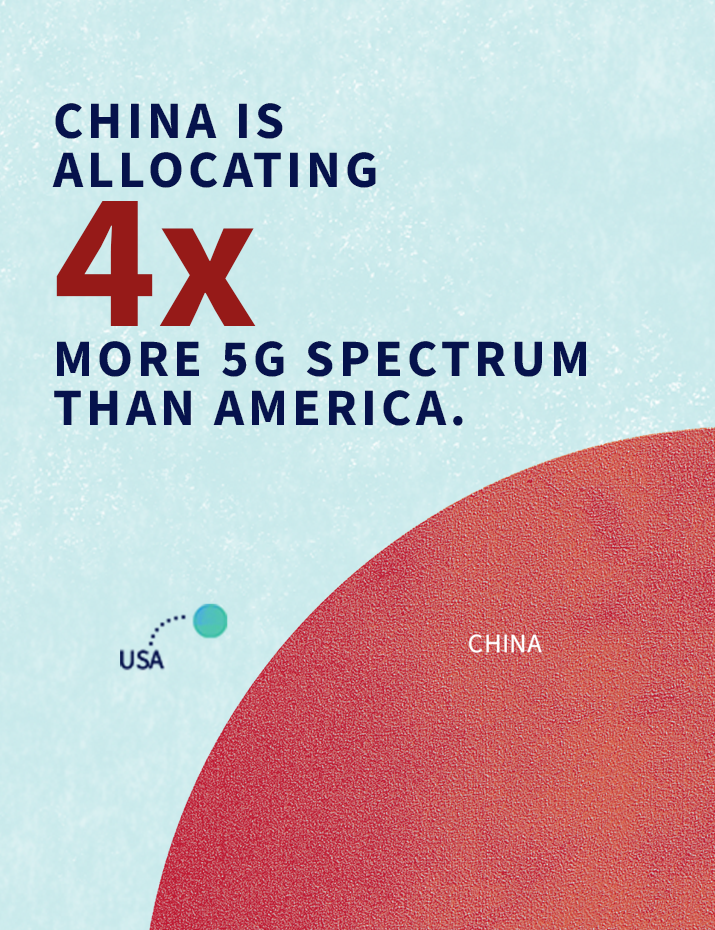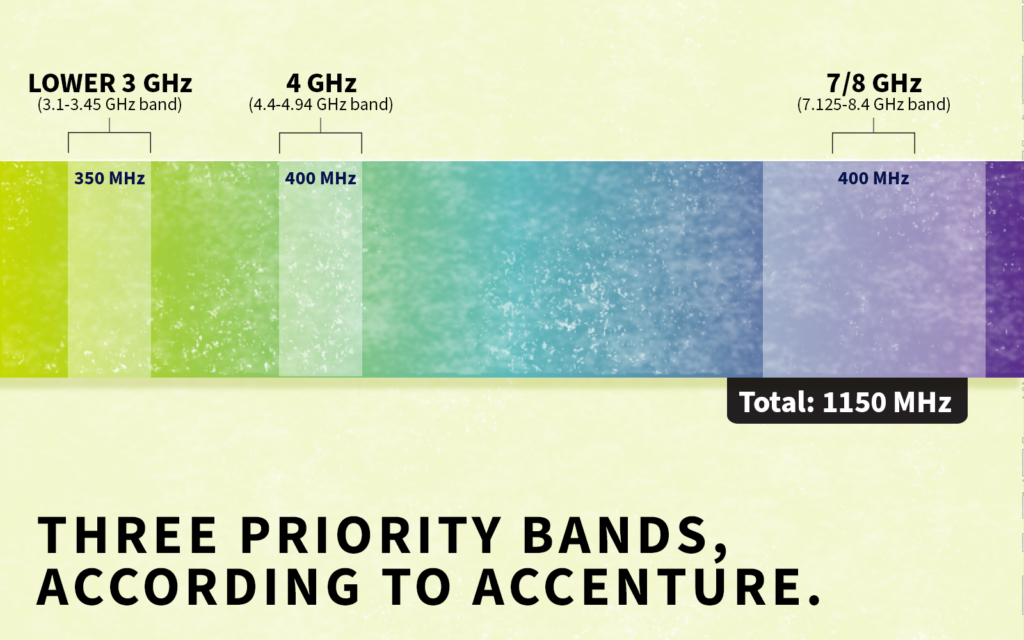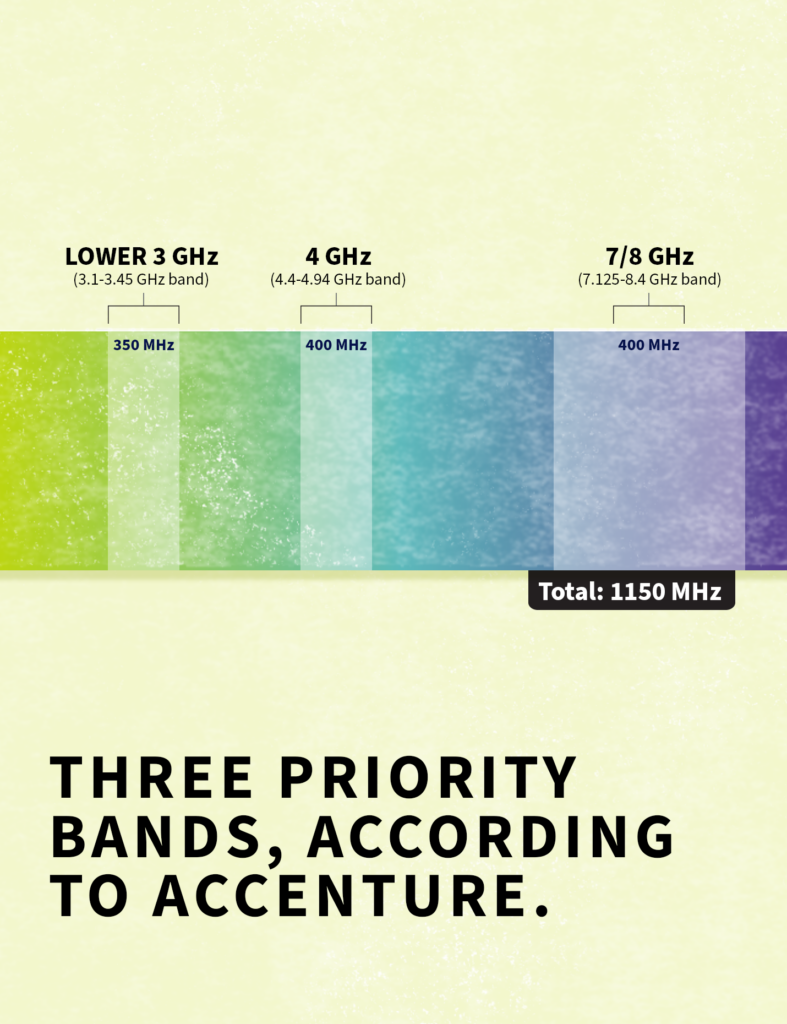America does not have enough full-power, licensed spectrum to meet exploding demand and fuel 5G-driven innovation.
Congress must act now to restore FCC auction authority and allocate 1500MHz of new 5G mid-band spectrum to secure reliable wireless for all, and America’s leadership of the industries and innovations of the future.
America needs more 5G spectrum.
FAQ
Answers to questions about the importance of full-power, licensed spectrum to support the future of wireless connectivity.
-
01
How does full-power, licensed spectrum contribute to America’s economy today?
Exclusive-use, full-power licensed spectrum is the foundation of our 5G-connected society and the wave of 5G-powered innovation that is transforming the way we live, work, create and play.
Today, networks built on a foundation of full-power, licensed spectrum contribute $825 billion to America’s economy each year, and support 4.5 million jobs. Based on economic impact, the wireless industry would be America’s seventh largest state and a member of the G20.
5G networks are built on a platform of exclusive-use, full-power licensed spectrum and will have an even greater impact. According to Boston Consulting Group, these networks will add $1.5 trillion to America’s economy and another 4.5 million jobs.
We are already beginning to see this impact today. 5G home broadband is bringing real competition to cable and is America’s fastest growing home broadband service. In fact, 95% of new broadband subscribers in 2022 chose 5G home broadband.
-
02
Why do we need more full-power, licensed spectrum?
America does not have enough full-power, licensed spectrum to meet exploding demand for wireless broadband. That has long-term consequences for the reliability of these networks and for America’s global economic and innovation leadership.
Over the past decade, demand for mobile data grew at 30 times the rate of available spectrum. The pace of mobile data growth is rapidly increasing—last year saw the largest annual increase ever, and Ericsson predicts consumers will use an additional 3x more data by 2027. If we do not make additional full-power, licensed spectrum available to meet this demand, we risk overloading the wireless networks we all rely on every day to live, work and learn.
While some have suggested using shared or unlicensed spectrum to meet this demand, only full-power licensed spectrum can support the level of reliability and security we need in today’s communications networks.
This level of reliability is also critical for leading the industries and innovations of the future, such as smart cities and driverless transportation. If we do not make sufficient full-power, licensed spectrum available, those innovations will be developed and exported by other countries, principally China. That has long-term implications for America’s global influence, economic leadership and national security.
Other countries recognize the challenge posed by growing demand and the opportunity presented by a new wave of 5G-driven innovation. These countries, including China, Japan, South Korea, the UK and France, are moving quickly to fuel their 5G networks with more full-power, licensed spectrum. Today they have 44% more 5G spectrum than the United States, and they plan to release even more in the coming years.
In short: America needs more licensed spectrum to keep up with accelerating demand and to maintain our global economic and innovation leadership.
-
03
Why can’t we use other types of allocations to meet demand?
Exclusive-use, licensed spectrum is the anchor of the wireless ecosystem, and it is critical to building highly reliable and secure wireless networks. Only exclusive-use, licensed spectrum provides operators with the ability to limit interference to deliver the quality of service expected from enterprise and industrial use cases built around the need for more reliability and security. To power key communications systems for emergency response, public safety also relies on networks leveraging exclusive-use spectrum because of its reliability and resiliency.
Other spectrum allocation models, such as unlicensed spectrum or complex, dynamic spectrum sharing systems where spectrum use is limited or can be preempted, cause real complications for both operators and consumers. The promise of connected healthcare, smart transportation and other advancements innovators are working toward in the U.S. require a spectrum policy designed to meet those needs reliably and securely.
-
04
How much more licensed spectrum do we need?
A new study from the Brattle Group finds that even optimistic increases in efficiency and additional infrastructure deployment will not be enough to meet projected demand—additional spectrum is the only realistic answer. The U.S. needs at least another 400 megahertz of full-power, licensed spectrum in five years and nearly 1,500 megahertz by 2032 to keep up with long-running trends in mobile data growth.
According to The Brattle Group, failure to provide more licensed spectrum to meet this demand “could lead to poor customer experience, network overload, and otherwise risk forfeiting U.S. leadership in 5G and beyond.”
